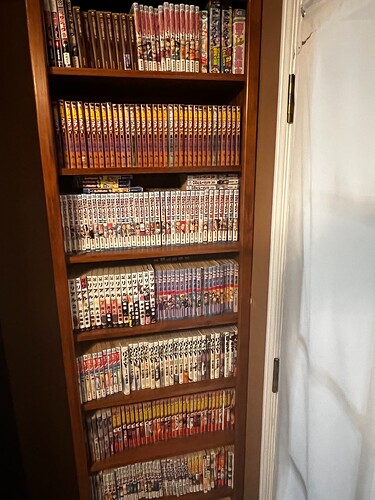Remember those moments!!! Those are so good for your motivation, particularly if you’ve been having a frustrating time recently.
As for the thread question, I don’t have anything nearly as detail-oriented as some of the responses that have been given, but here’s my two cents:
1.) I do actually agree that watching anime with English subtitles can do something. It may not be a lot, depending on your skills and focus, but it gives you the opportunity to listen for things you know AND to just get your ears accustomed to Japanese pronunciation, rhythm, etc. It won’t be magic, but watching with English subtitles and getting 5% rewards out of it is better than trying to watch without subtitles, getting frustrated or losing interest, and stopping (and getting 0% rewards). The immersion you can do will always do you more good than the immersion that makes you want to quit. (I know in your case its concerns of time and effort rather than quitting, but my general point is that frustration can hurt your efforts worse than using ‘weaker’ immersion.)
2.) Related to the above, finding the type of immersion that works for you is always super important, too, but especially in the sense of finding something that you enjoy doing.
Personally, I don’t do podcasts, because I have trouble focusing on them in the first place and they tend to be topics that just don’t hold my interest. However, I can and will spend money to go see a movie in theaters (I’m currently living in Japan, so that’s automatically No English Subtitles). Do I only understand maybe half the dialogue? When I’m lucky! Do I miss a lot of detail? You bet! But the movie looks cool and the visuals help me to get the broad strokes of the story, and I have fun watching it.
In the same vein, I don’t have much luck with graded readers, for the same reasons (focus and lack of interest). But I have manga that I’ve read in English previously that I’m reading in Japanese now. It’s a lot harder than a graded reader probably would be (because it’s a murder-mystery series rather than a learner-oriented story about colors), and I still don’t know a lot of the vocabulary I come across, but since I’m A) interested and B) have previous knowledge of the story, I can look things up or guess from context as I go along.
3.) Finally…don’t be afraid to wait! Plenty of people have said it so far, so I’m adding another hat to the pile. If you’re feeling like immersion just isn’t helping you yet, you can always keep studying and come back again in the future.
Now, I’d probably recommend trying a few different types of immersion before backtracking (because like I said, finding something that works and is interesting to you is really important imo), but if it’s just not working yet then you can always take a step back. Again, I find that frustration is a worse enemy than ‘weak’ immersion (or no immersion at all). And if you try again later on, you may find that you get one of those great Happy Tears moments – because maybe this time you do understand that phrase, or this vocabulary, and you can see the progress you’ve made!
No matter what, though, good luck and do your 頑張りbest!


